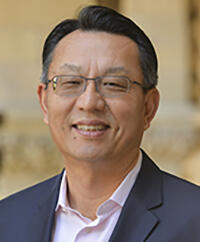This op-ed by Oriana Skylar Mastro was originally published in Foreign Affairs.
A new administration in Washington faces a familiar problem: North Korea is once again testing missiles, including ballistic missiles, in contravention of a UN Security Council resolution. Rather than retread dead-end paths, the administration of U.S. President Joe Biden has pledged to think anew on North Korea, and it has already distinguished itself from its predecessor by signaling that it will consult with U.S. allies and partners to formulate a strong response to Pyongyang that does not rule out diplomacy.
Such a reorientation is welcome. But if the new administration really wants to move the needle on North Korea, it will need to rethink the assumptions it has inherited about China’s role there. So far, the Biden team has cleaved to the long-held view that the United States and China share a common interest in the nuclear disarmament of North Korea and that U.S. policy there must make use of Beijing’s tremendous influence over the government in Pyongyang. During his visit to Seoul last week, Secretary of State Antony Blinken asserted that “Beijing has an interest, a clear self-interest, in helping to pursue the denuclearization of [North Korea] because it is a source of instability.” Blinken further paid tribute to China’s “critical role" and “unique relationship" with North Korea.
[Subscribe to our newsletters to get updates on all of our scholars' work.]
But Beijing has demonstrated for almost three decades where its self-interest really lies, and that is in maintaining the status quo. China certainly doesn’t want to see North Korea weakened and the United States strengthened on the Korean Peninsula. But neither does it want the balance to tip so strongly toward North Korea that the United States feels compelled to bulk up its military posture. China is toeing a careful line to keep the prospect of peaceful denuclearization alive without provoking Pyongyang or aggravating tensions with the United States.
If Beijing were to do nothing to assist in denuclearization, the United States could lose confidence in diplomacy and decide instead to increase its military presence on the peninsula or even to take military action. But if Beijing does too much to help the United States, North Korea could collapse, and the whole peninsula could fall within the U.S. orbit. China’s North Korea policy is therefore an elaborate balancing act. Through it, Beijing seeks to maintain influence over the regime of Kim Jong Un without emboldening it; participate in multilateral efforts to pressure North Korea, such as the UN sanctions program, without exposing Pyongyang to pressure that could precipitate regime collapse; and offer the United States just enough hope for a diplomatic solution to forestall military intervention while simultaneously ensuring that any resolution contributes to China’s relative power, not that of the United States.
China’s Balance
For better or worse, the past year has been one of great change in Chinese strategy and policy, especially toward its neighbors. China flew an unprecedented number of sorties into Taiwanese airspace, placed trade sanctions on Australia after the latter supported inquiries into the origins of COVID-19, and came to blows with India over a border dispute that had not seen armed conflict in decades. But in the case of North Korea, China has stuck to its balancing act.
Beijing and Pyongyang have been on tepid terms the past few years. On paper, the Sino-North Korean Mutual Aid and Cooperation Friendship Treaty makes the two countries allies. But in practice, the Chinese government has distanced itself from the alliance, stating that if North Korea provoked a conflict, Beijing had no obligation to defend it. A Chinese Foreign Ministry spokesperson remarked in 2006 that China was not an ally of North Korea, and Chinese Foreign Minister Wang Yi has characterized the relationship as “normal state-to-state relations.”
A flurry of diplomatic activity in 2018 and 2019 gave many the impression that the two countries meant to repair and normalize their relationship. Xi Jinping and Kim Jong Un met for the first time in March 2018, marking Kim’s first meeting with any world leader. Four more meetings between the two followed, in May and June 2018 and January and June 2019, and Chinese official media noted that the relationship “radiated a new vitality.” But despite numerous exchanges of platitudes since—just last week, Xi sent a message to Kim affirming that the countries’ traditional friendship is a “valuable asset” and seeming to suggest an intention to strengthen relations—Xi has maintained his distance from Kim and his regime.
The 70th anniversary of China’s entrance in the Korean War passed without a summit or fanfare about the nations’ closeness. Social-distancing requirements undoubtedly had something to do with the lack of a high-level meeting but could not explain the absence of the customary propaganda about how the two countries are like “teeth to lips.” Moreover, Xi continues to avoid referring to North Korea as an ally. After his state visit to Pyongyang in June 2019, Xi described the relationship as one of “friendly cooperative relations,” and on a January 2021 phone call with Kim, he characterized the bilateral relationship as one of “friendly socialist neighbors linked by mountains and rivers”—in the language of the Chinese government, hardly an expression of closeness and solidarity.
Then there is China’s approach to managing international efforts aimed at reining in North Korea. Here too, China has continued the same dance, trying to come off as a team player while restraining the international community from acting too harshly against the Kim regime. China voted in favor of all three of the UN Security Council resolutions on North Korea in 2017. In 2019, Beijing even garnered praise from then-President Donald Trump, who said that China was “a big help” in dealing with North Korea. On March 25, 2021, Pyongyang conducted two ballistic missile tests in violation of the UN Security Council resolutions, and Beijing’s Ministry of Foreign Affairs did not condemn them but predictably “call[ed] on all parties concerned to work together to maintain the situation of detente, and promote political settlement of the Peninsular issue through dialogue and consultation.”
Beijing has always been skeptical of using sanctions to coerce North Korean compliance on the nuclear issue, expressing concern that too much pressure could push Kim to lash out and undermine international efforts. When the United Nations imposed sanctions in 2017, China at first appeared poised to strictly enforce them. But then Beijing quickly reverted to business as usual, teaming up with Moscow to try to ease sanctions. China also allegedly violated the regulations by supplying North Korea with 22,730 tons of refined oil and helping Pyongyang export about $370 million worth of coal. Three months ago, the United States publicly accused China of circumventing the sanctions to aid North Korea, and China denied having done so.
Beijing’s North Korea policy is primarily motivated by a desire to counter U.S. power in the Asia-Pacific region and increase Chinese influence on the Korean Peninsula. The nuclear issue gives Beijing a pretext to call for the United States to reduce its military presence and activity on the peninsula on the grounds that North Korea would halt weapons development if it felt less threatened.
Beijing decidedly does not want a war on the peninsula. Such a conflict could destabilize the region and end with a unified Korea under U.S. influence. Trump’s “fire and fury” approach and his willingness to meet directly with Kim threatened China’s ability to triangulate between Washington and Pyongyang in order to ensure its own maneuverability. The real possibility that the United States would forcibly displace the North Korean regime convinced Beijing to both strengthen its ties with Kim and put real pressure on his government. But the last Trump-Xi summit, in February 2019, was a failure; the Trump administration seemingly abandoned its focus on denuclearizing the Korean Peninsula, and Beijing returned to business as usual.
Biden’s Choice
To set a new course on North Korea, the Biden administration needs to throw Beijing off balance once more. The status quo—in which Beijing enhances its influence over the future of the peninsula and wins international image points while simultaneously undercutting the United States’ North Korea policy—is no longer acceptable. The United States needs to strike its own balance: one in which Washington makes progress on reducing the threat from North Korea while also gaining ground in its competition with Beijing.
Multilateral diplomacy that takes a more incremental approach to denuclearization, such as a freeze on North Korea’s current program, will not accomplish this end. Beijing would welcome such a move, as many in China thought that Trump’s demand for complete denuclearization was counterproductive and that Washington’s alienation of its allies risked spurring South Korea or Japan to develop nuclear capabilities. China sees a multilateral approach as one that affords it more influence on the relevant players and can help ensure a positive outcome for Beijing.
The White House should instead consider pursuing multilateral diplomacy that excludes Beijing or that at the very least does not give China pride of place. Such an approach would be consistent with the predilections of many of Biden’s advisers, who seek a pragmatic tack that does not rely on Beijing’s goodwill. China would likely react by scrambling to redefine its role in managing peninsular affairs in order to make sure that it is not cut out of any deal. China might tighten its relations with North Korea and Russia in order to influence policy through them as proxies. The United States could then join forces with European allies in response, whether to counter Beijing’s overreaching claims in the South China Sea or to buttress democracies against Chinese political interference.
Greater closeness between China and North Korea could prove useful to the United States. North Korea has in effect placed the harshest imaginable sanctions on itself, shutting its borders completely in January 2020 to prevent the spread of the novel coronavirus. The country’s trade with China is down 81 percent as a result. China’s economic leverage over North Korea has thus dissipated—and with it, the effectiveness of sanctions as a coercive tool. China may now work to create new leverage against North Korea, perhaps through positive inducements, which could supply another tool for the Biden administration to use later on. And if Beijing cannot forge closer ties with Pyongyang, it might even seek to ingratiate itself with Seoul—also a favorable development for Washington, as such relations may allow the United States to pursue deeper military cooperation with South Korea’s regional allies without fear of provoking a strong Chinese response.
Some Biden advisers, including Kurt Campbell, have called for a bolder approach. One possibility is for Washington to shift its focus from denuclearization to arms control. Under this scenario, the United States would accept North Korea as a de facto nuclear state and take measures to enhance deterrence against it, such as stepping up the U.S. military presence and tightening military cooperation with allies in the region. China would have a harder time than before delegitimizing the U.S. military presence in the region and just might be compelled to do what is necessary to induce North Korea’s denuclearization, even at the cost of destabilizing the regime.
Biden’s new approach to North Korea must force China to tip its carefully constructed balance toward either complete cooperation or obvious obstruction. Depending on which way China goes, the United States can then decide whether to include Beijing or cut it out of its North Korea policy efforts. But one thing is clear: conducting business as usual with Beijing hurts U.S. objectives in both denuclearization and competition with China.






![[Left] Graphic of missile, Taiwan flag, and China flag; [Right] Oriana Skylar Mastro](https://fsi9-prod.s3.us-west-1.amazonaws.com/s3fs-public/styles/727x409/public/hero/oriana_taiwan_munk_debate_hero.png?h=c4d9845d&itok=OXGfpqJ8)


 As U.S. Special Envoy for North Korean human rights issues from 2009 to 2017, Ambassador Robert King led efforts to ensure that human rights issues were an integral part of U.S. policy toward North Korea. In this book launch webinar, he will share his extensive experience as special envoy and insights into the U.S. role in addressing the North Korean human rights crisis. Ambassador King will be joined by Jung-Hoon Lee, Professor of International Relations at Yonsei University, who will talk about his role as Ambassador for North Korean Human Rights in the past. Professor Lee will remark on how the North Korean human rights issues have been impeded under the current government in South Korea.
As U.S. Special Envoy for North Korean human rights issues from 2009 to 2017, Ambassador Robert King led efforts to ensure that human rights issues were an integral part of U.S. policy toward North Korea. In this book launch webinar, he will share his extensive experience as special envoy and insights into the U.S. role in addressing the North Korean human rights crisis. Ambassador King will be joined by Jung-Hoon Lee, Professor of International Relations at Yonsei University, who will talk about his role as Ambassador for North Korean Human Rights in the past. Professor Lee will remark on how the North Korean human rights issues have been impeded under the current government in South Korea.

 Tomas Ojea Quintana, Special Rapporteur on the situation of human rights in the Democratic People's Republic of Korea.
Tomas Ojea Quintana, Special Rapporteur on the situation of human rights in the Democratic People's Republic of Korea.








